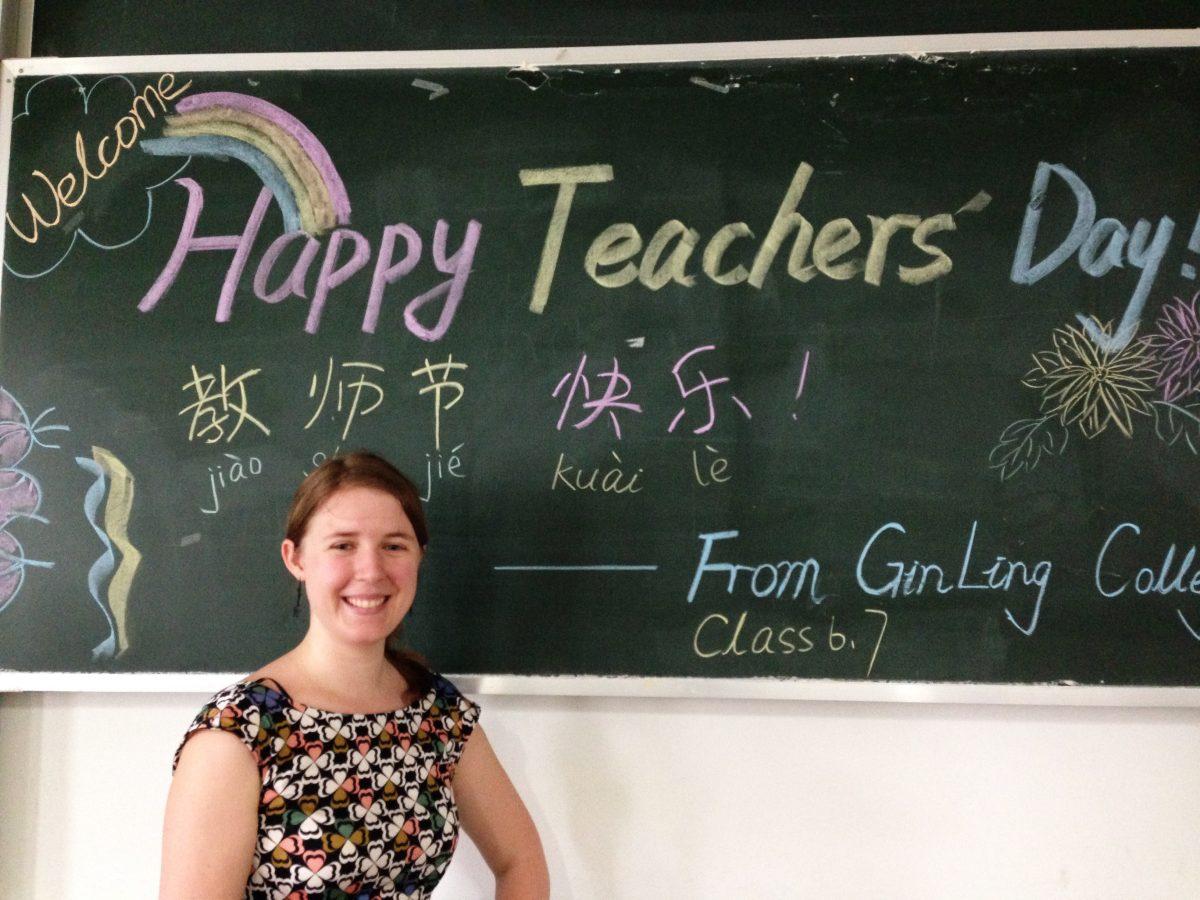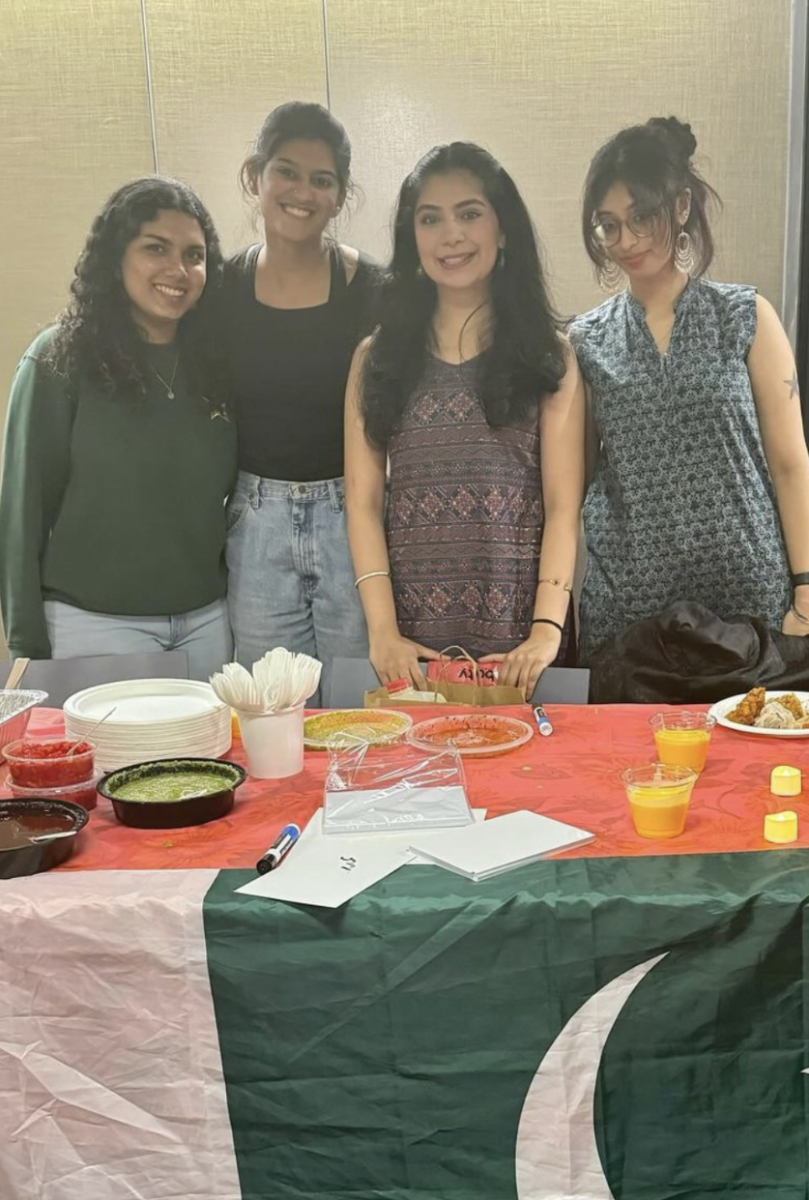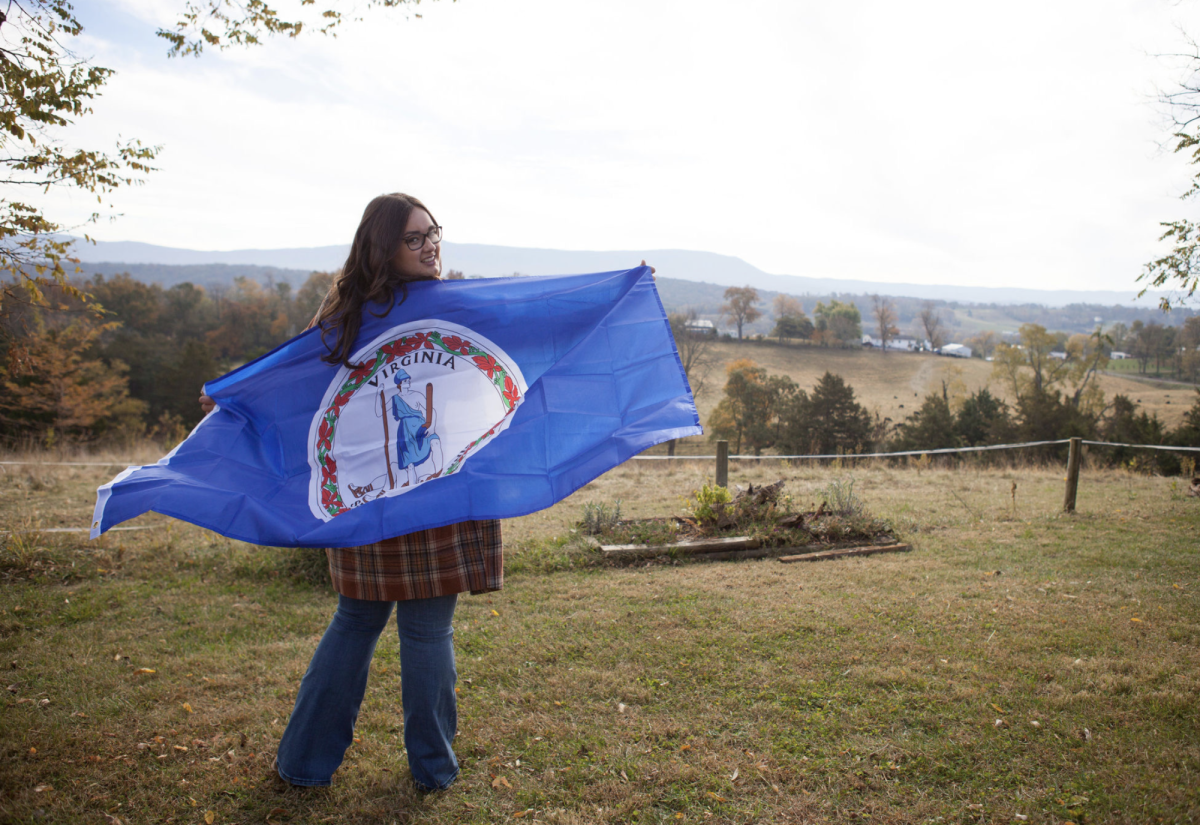Ever considered teaching English in rural villages, traveling to Indonesia to learn music or rebuilding infrastructure in Appalachia? Known for graduating many high-achieving alumnae, Wellesley also offers advice on a range of prestigious scholarships and fellowships. As the school year gets into full swing, many Wellesley students are beginning their applications for fellowships. At the same time, many alums and current students are busy starting on a variety of scholarships and fellowship projects.
Elizabeth Mandeville ’04, director of fellowship programs at Wellesley’s Center for Work and Services (CWS), described the personal statement as the most important part of any fellowship application. She explains that writing this essay requires a great deal of introspection and is an excellent opportunity for the articulation of a potential fellow’s journey and objectives.
Indeed, despite the vastly different projects Wellesley fellows and scholarship recipients are undertaking, almost everyone emphasized the importance of the application itself, regardless of the result. “Applying for fellowships was a unique opportunity to be introspective about my passions and interests, and elucidate what they reflected about my goals for myself,” said Audrey Wozniak ’14, who currently holds a Watson Fellowship.
Wozniak was featured at the end of the Spring 2014 semester as one of Wellesley’s Watson Fellowship recipients last year. She updated the News on her journey by saying that her first few months as a Watson fellow have taught her to proactively seek out new events, activities and people, and to say yes to every opportunity that comes her way.
“Up to this point, I have always had a predetermined routine of school or work — nothing was left up to chance,” Wozniak said, “but now, even when my plans fall through or I don’t know where I’ll be the next day, I take heart that my ability to embrace spontaneity has led to so many amazing experiences and relationships already.”
Wozniak is currently in Hong Kong, performing on violin and erhu with a Chinese orchestra. She also traveled to a rural village with some of China’s top erhu players and met China’s foremost scholar of Ming Dynasty music.
Wozniak’s appreciation for the application process is shared by Christine Keung ’14, a current Fulbright fellow.
“Writing my research proposal made me realize that there is so much I still don’t understand about China, and it challenged me to ask the right questions,” Keung said.
An economics major and Chinese language and literature minor, Keung hopes to explore rural communities on the Loess Plateau in Xi’an, China. Her parents are from very different parts of China, so Keung grew up fascinated by the diversity of different regions in China.
For Keung, the freedom offered by the Fulbright fellowship is invaluable. “Once you arrive in the country,” she said, “it’s up to you to figure out how to execute on your project. Unlike the classroom setting with a set syllabus and assignments, you set your own research timeline.” To conduct her research in northwest China’s rural communities, Keung had to build relationships in order to gain access to the villages.
Apart from gaining an appreciation for uncertainty, spontaneity and independence, Keung is also aware of the cultural differences. “To many domestic Chinese friends,” she said, “I am the first American they’ve ever engaged with — something I’m always conscious of when I interact with them.” Keung adds that, in many ways, the time she spent with them impacts the way they view Americans.
Keung’s appreciation of cultural differences is echoed by Katie Smiley ’14 who is currently a Wellesley-Yenching fellow in Nanjing.
The Wellesley-Yenching Fellowship is a program that sends fellows to Hong Kong, Nanjing, and Taipei for teaching or museum internships. Smiley teaches English courses to Ginling College students in Nanjing, China.
A psychology major and history minor at Wellesley, Smiley teaches English Picture Books and Teaching Practices, Greek and Roman Mythology, Academic Thesis Writing and Public Speaking. After living in China for two months and working for one month, Smiley said that she has become more flexible and adaptable.
“The work environment can be somewhat unpredictable, and writing lesson plans every week is helping me become much better at managing my time,” Smiley said. “It’s a lot of work to manage almost 105 students!”
Smiley explains that fellows have to design their courses on their own. Certain classes — like those on picture books or public speaking — are entirely new and have never been taught at Ginling College before. She discovered that materials from previous years were too difficult for her students. Through these difficulties, however, Smiley has gained more confidence.
“It’s important to be adaptable and open to new experiences, good and bad,” Smiley said. Smiley adds that the experience will help her learn to deal with the unexpected. “More than anything, this fellowship is teaching me that where there is a will, there is a way.”
Despite the challenges, Smiley aspires to learn more about how China’s education system works. “Working with my students has already been very illuminating,” Smiley added, “and I hope to also learn how to become a better teacher for when I come back to the United States.”
Madeline Weeks ’11 was awarded the Fulbright-García Robles Scholarship. She used the grant to pursue a 9-month independent research project on coffee farming in Mexico, at the end of which she was awarded an additional Fulbright Social Engagement Grant to lead three participatory workshops for roughly 150 coffee farmers in the Mexican communities where she conducted her research.
After returning from the Fulbright Grant in August, Weeks left for the U.K. on a Gates-Cambridge Scholarship, which is a full scholarship that enables students from outside the U.K. to pursue a full-time postgraduate degree at the University of Cambridge. She plans to pursue a 12-month Master of Philosophy in Geographical Research.
An economics and Spanish double major at Wellesley, Weeks described her Fulbright journey as a humbling and eye-opening experience.
“Simply put,” Weeks said, “the experience taught me how very little I knew about coffee in the context of Mexico.”
She learned the importance of building an understanding of the local culture and reflecting constantly. Conversing with the coffee farmers on a more personal, in-depth level was an enriching experience for Weeks. “For me,” Weeks explained, “having a meaningful conversation with the farmers was the very least I could do to demonstrate a respect for their way of life and expertise in the field.”

Weeks has started to think more about the ethics of research. She explained that, even though the farmers lived in very humble circumstances, they were extremely generous in sharing what they had.
“The concept of ‘convivir’ means ‘to live together,’” Weeks said, “and is a concept that I hope to carry with me for the rest of my life. No matter how little you may have, you should always think about what you can do to help others.”
Weeks added that, through her Fulbright experience, she experienced life without high-tech distractions. “There were days I went without cell phone signal or Internet connection,” Weeks said. “Yet, these were some of my most productive days.”
From the farmers, she learnt to appreciate spontaneity, go outside, enjoy nature and to engage in quality interactions with other people and their surrounding ecosystems. “They taught me that sometimes being late is not always a bad thing. And there’s something to be said for having unplanned time to allow for spontaneity in life,” she said.
Fellowship opportunities are not restricted to seniors and alumnae. Ashley Funk ’16, recipient of a Udall Scholarship and an Environmental Protection Agency Greater Research Opportunities (EPA GRO) Fellowship, is pursuing an environmental studies major at Wellesley and a 4 year plus 1 year degree with Olin College for Sustainable Engineering Design.
The Udall Scholarship is awarded to students who are committed to careers related to the environment and Native American tribal policy and health care. The EPA GRO Fellowship includes monetary support for the fellow’s junior and senior years tuition, as well as a paid internship with the EPA over the summer.
Funk hopes that the Udall scholarship will provide her the opportunities to connect with the hundreds of other fellow scholars in a network that she calls the “Udall family.”
“I know that I will be able to use this new family as an incredible resource as I move forward in my career,” Funk said.
With EPA GRO, Funk looks forward to developing her skills in community-based engineering and design. As a student from a low-income family, Funk said that the funding from the fellowship will allow her to focus more on her studies and academic research.
“This is time that would otherwise be taken up with a necessary job that I need to monetarily support myself,” Funk explained.
Funk’s devotion to community-based engineering inspired her wish to work with communities in Appalachia that are in need of social and infrastructural rebuilding. She hopes to use her experiences in both design engineering and activism to rebuild more sustainable communities through community collaboration and personal empowerment.
“Through my work in engineering and activism,” Funk said, “I have found that both of these fields have similar roots: They are both solution-based strategies that rely on teamwork and problem-solving.”
Because of these similarities, Funk thinks that it is possible to be an activist who uses engineering as a source of social and environmental change.
“I hope that the scholarship will help me solidify and build upon my plans for the future,” Funk added.
The career paths the fellows and scholarship recipients hope to pursue are as diverse as their projects. Keung was accepted to Harvard’s 2+2 deferred MBA admission program. She plans to work for a few years and then attend Harvard.
Smiley also plans to attain a higher degree, possibly in education or developmental psychology.
“My career plan is not exactly firm at the moment,” she said, “but education is definitely a big focus!”
Weeks also wishes to pursue further studies in her field.
“The Cambridge MPhil degree will hopefully serve as a stepping stone to a PhD degree,” Weeks said. “Ultimately, I would like to teach at the university level in the field of interdisciplinary environmental studies from a social science approach.”

Wozniak, whose interest lies in fields as diverse as international relations, music and journalism, hopes to pursue a Master’s of Science in Politics and Communications at the London School of Economics after Watson. “My longtime plan for life after Wellesley was to become a foreign correspondent,” Wozniak said. “Now that I’m in the thick of my Watson Fellowship and focusing on music-making wholeheartedly for a year, I have come to realize how important it is to have music feature prominently in my life in one way or another.”
Wozniak concluded with advice prominent cellist Yo-Yo Ma gave her, “Audrey, you must be the architect of your own life!”
Wellesley students have taken advantage of numerous fellowship and scholarship opportunities.
Mandeville adds that, often, students think fellowships are only for the students with the highest GPA, the most leadership activities and the biggest career goals.
“That’s just not true,” she said. “There are awards like that, but they are the minority. Each fellowship is different.”
Wellesley’s CWS provides valuable resources and advice to help fellowship applicants succeed. However, Mandeville emphasizes that students should not apply for fellowships simply because they seem like good opportunities, but find the award and experience that really matches who they are at this moment in their lives.
Fellowships are meant to challenge students to see the world in a new and more complex way, and to give students the skill to maneuver in it.
“By the end of a fellowship year, if you can speak to a cab driver in a foreign language, understand a country’s mealtime rituals, or have a deeper sense of what it means to be a graduate student, you’ve had a successful fellowship year,” Mandeville concluded.




